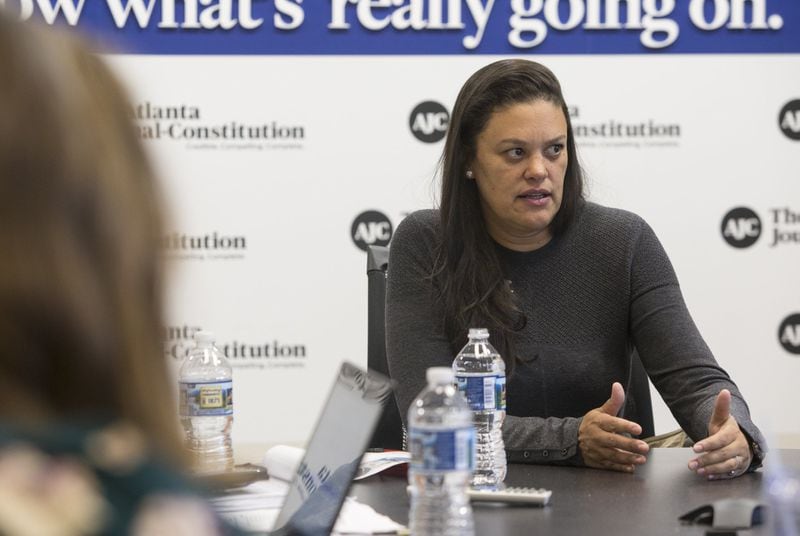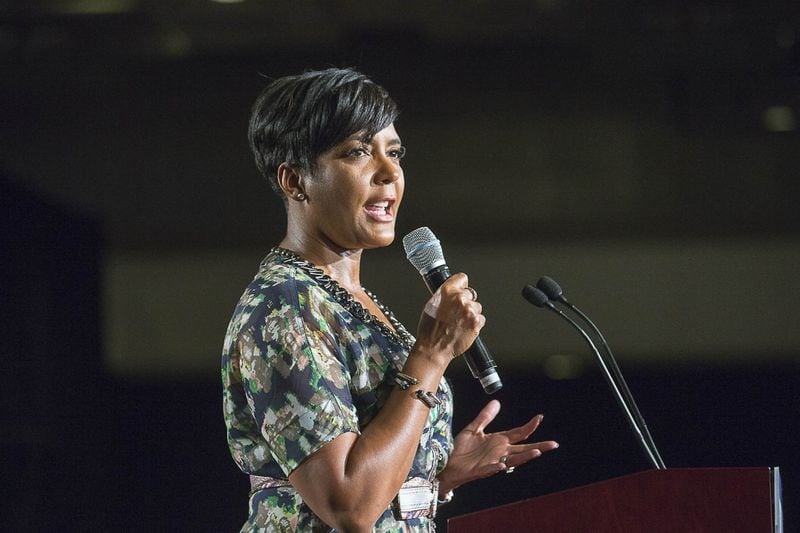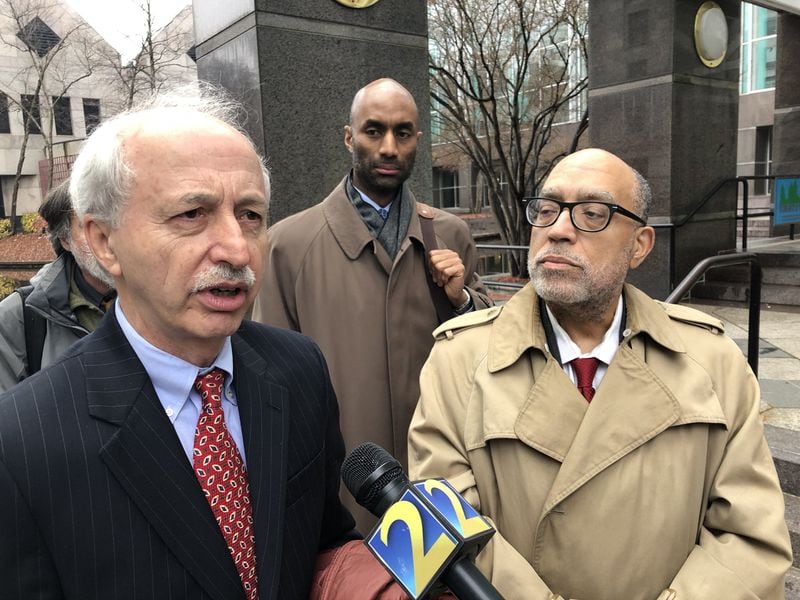The Atlanta school board and Atlanta City Council approved a deal, derided by some, that would allow the use of school property taxes to help pay for the Gulch project.
The school board met today to approve the agreement by a 8-0 vote, with Kandis Wood Jackson absent. Several hours later, the City Council unanimously approved the same terms.
The deal is a complicated give-and-take with the city that Atlanta Public Schools Superintendent Meria Carstarphen said amounts to a $130 to $180 million win for the school district.
VIDEO: More on this topic
Some who oppose giving the Gulch project up to $1.9 billion in public money, including potentially more than $300 million in future school taxes, to pay for the massive $5 billion downtown development have said APS could have gotten more from the city. They called the agreement a bad deal for the school district and its students.
The group Redlight the Gulch says the deal represents a net loss of $520 million for the school district.
“It’s up to you to say, ‘This is a new day, it’s 2019 and we won't continue to be played by the City of Atlanta. We won’t continue to allow our children to suffer because we are giving billionaires money that they don’t need,’” Deborah Scott, executive director of Georgia STAND-UP, told school board members.
Carstarphen, in a blog post published Sunday, said critics were basing their numbers on "outdated and inaccurate information or just making up stuff."
School board chairman Jason Esteves said: “I’m excited about the fact that this agreement reduces our exposure while at the same time providing guardrails... .”
About 15 people addressed the Atlanta school board: all expressed concerns about the deal and how quickly the school board was acting on it.
Carstarphen apologized for how quickly the school board is scheduled to vote on the proposal, which Mayor Keisha Lance Bottoms' office announced Friday after The Atlanta Journal-Constitution obtained a draft of the deal.
Carstarphen said the length of time that the public has to review the deal is shorter than the district would all prefer, and blamed court deadlines for requiring the school board to act speedily -- an explanation critics rejected.
For months, APS and the city have battled over the city’s plan to use school taxes for the Gulch project. The public financing package includes up to $1.25 billion in future sales taxes plus $625 million in property taxes collected within the Westside Tax Allocation District, or TAD. APS taxes would make up roughly half of those property taxes, with the city and Fulton County chipping in the remainder.
Before agreeing to the Gulch funding plan, school leaders wanted to renegotiate APS’ participation in other special taxing districts in which it participates. TADs are areas where property taxes are frozen for a period of time and future increases in tax collections, generated from rising property values as the area redevelops, are diverted to help pay for that development.
The school district currently participates in five TADs and has contributed about $434 million in school tax money since 1999 to support development in those areas.
When the TAD expires, those government bodies that gave up potential tax revenue are supposed to reap the financial benefit of new, higher property values.
In October, Carstarphen said APS would not discuss Gulch tax incentives unless the city renegotiated the terms of other TADS that use school tax dollars. The school district's opposition, coupled with concerns from city council members, prompted the city to revise terms of the Gulch funding package; in November, the city council approved an incentive package that the city said did not require APS approval though it still relied on school taxes.
The school district responded by passing a resolution in December that called for its written approval before school taxes could be used to pay for new projects, such as the Gulch, in the Westside TAD. The school district also went to court to oppose the bond validation process, a legal step required before bonds for Gulch can be issued.
A court hearing on those objections has been scheduled for Jan. 16.
The pending agreement with the city would settle the school district’s objections out of court, though other Gulch opponents have said they will continue their legal fight.
The APS-city deal would allow school taxes to be used for the Gulch project through 2038. In exchange, the city would pay APS $15 million through 2023 and then pay the school system half of its tax increment from 2024 until the TAD closes in 2038, so long as there's money left over after paying off debt and other fees.
The city also would end the school district’s participation in an Eastside taxing district early, a move that would allow APS to receive more tax revenue but would cut in half the amount of public funding available for redevelopment projects in the area around Sweet Auburn, Memorial Drive and parts of downtown.
The city also would agree to not issue any new bonds or approve new projects in the Atlantic Station taxing district, allowing existing debt to be paid off as soon as possible so that APS could then start collecting its full share of taxes.
The compromise calls for APS to join four additional special taxing districts that would get to use school tax dollars to pay for development projects along Campbellton Road; Donald Lee Hollowell Parkway and Martin Luther King Jr. Drive; Metropolitan Parkway; and in the area around Georgia State Stadium.
The amount of school taxes that go to support projects in those four areas would be capped at $176 million over 30 years.
Carstarphen touted the deal as yielding a “net positive impact” for the school district of up to $180 million. She said it also more evenly distributes the financial impact to APS over the coming decades, limits the school district’s financial risk, and provides millions of dollars in immediate payments from the city.
The deal failed to win support from Gulch opponents, who asked the school board to remember its history with the city in other taxing districts.
“Given the history of the TADs and the city’s mismanagement of them you should have serious misgivings about this transaction,” said James Martin of Berkeley Park.












